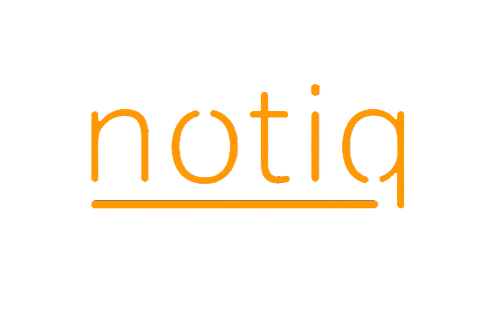Convertible loan agreements: notarized or not?
16 October 2025
Content of convertible loan agreements
Convertible loan agreements (CLAs) are often used by startups as a means of interim financing (i.e., before a financing round and thus a valuation of the company takes place). The lender grants the company a loan. Unlike with traditional loan agreements, it is unclear whether the loan will be repaid or whether the lender will instead receive shares in the company worth the loan amount (i.e., the loan amount is converted into an equity investment). The number of shares this will be is usually determined based on the company's valuation underlying the next financing round.
Convertible loan agreements concerning limited liability companies (GmbHs) are not regulated by law (unlike those concerning stock corporations, see Section 221 AktG ). There is currently no supreme court ruling (from the Federal Court of Justice) on the issue. Therefore, it is unclear whether convertible loan agreements must be notarized or certified.
Previous predominant practice
There are some legal scholars who argue that GmbH convertible loan agreements do not require notarization. In the past, notarization was therefore often dispensed with in practice.
Recent developments following the decision of the OLG Zweibrücken
In 2022, a decision by the Higher Regional Court (Oberlandesgericht, OLG) of Zweibrücken (judgment of May 17, 2022, case no. 8 U 30/19) led to a change in this attitude. Since then, convertible loan agreements have frequently been notarized.
The decision concerned an investor/lender who invoked the invalidity of the unnotarized convertible loan agreement. He therefore demanded immediate repayment of the loan amount. The Higher Regional Court of Zweibrücken upheld his claim. As a result, the GmbH in question was declared insolvent. The managing director was ordered to pay EUR 58,398.35 plus interest because he had made further payments after the insolvency had occurred.
Reasons that may indicate a need for notarization
"Normal" loan agreements do not require notarization or certification.
The need for notarization of a convertible loan agreement may result from the conversion mechanism contained in the convertible loan agreement. This is because the lender wants to be sure that it can force the company or its shareholders to issue new shares to it instead of repaying the loan.
New shares in a GmbH can only be issued through a capital increase. The capital increase resolution must be notarized according to Section 53 (3) of the GmbH Act. The company itself cannot resolve the capital increase. According to Section 53 (1) of the GmbH Act, this is the responsibility of the shareholders.
Therefore, if the GmbH, as the borrower, is to be able to obligate itself to the lender/investor in the convertible loan agreement to issue new shares in the event of conversion, it must have the permission/ authorization of the shareholders to do so. Whether this authorization resolution requires notarization, like a capital increase resolution, is assessed differently.
As an alternative to authorizing the company, the shareholders can also become parties to the convertible loan agreement themselves and commit themselves to the lender/investor (as part of a so-called voting agreement ) to resolve a capital increase in the event of conversion, thereby transferring the shares to the lender/investor as compensation for the loan amount. Whether such a voting agreement requires notarization is also unclear. There are also pros and cons in this regard.
Finally, the need for notarisation may also arise if the lender undertakes to enter into a shareholders' agreement in the event of conversion, which contains assignment obligations (drag-along/tag-along).
Risks of non-notarization
As long as the Federal Court of Justice (BGH) does not issue a fundamental ruling on the issue and the legislature does not regulate the matter by law, the uncertainties described above will persist. Thus, in the case of non-notarization, the risk remains that a court (as recently the Higher Regional Court of Zweibrücken) will find the non-notarized convertible loan agreement invalid.
The company faces the risk that the lender/investor, after a possible change of heart, may invoke the formal invalidity of the convertible loan agreement and demand immediate repayment of the loan amount. Especially for startups, this can quickly lead to insolvency and/or excessive indebtedness. Managing directors may then quickly face liability issues (involving their personal assets) or even criminal charges for insolvency-related offenses.
The lender/investor faces the risk that they cannot enforce the issuance of shares and can only demand repayment of the loan amount. However, investments via convertible loans are usually made to obtain a stake in a promising startup at a favorable valuation (keyword: discount).
In summary:
Whether GmbH convertible loan agreements require notarization is neither regulated by law nor clarified by supreme court rulings. The most recent higher court ruling on this issue tended to assume that notarization is required.
We would be happy to personally explain further details regarding each individual case, such as the formal requirements that powers of attorney must meet to conclude convertible loan agreements.
Q&A
What is a convertible loan agreement?
Convertible loan agreements are loan agreements which have the special feature that the lender is granted a stake in the company receiving the loan as an alternative to repayment of the loan agreement.
What are convertible loan agreements used for?
Convertible loan agreements are often used as instruments for interim financing, i.e. before the conclusion of a financing round.
Do convertible loan agreements require notarization?
It is controversial and has not yet been clarified either by law or by supreme court rulings whether convertible loan agreements must be notarized.
Does a convertible loan agreement have to be notarized in German?
No. A convertible loan agreement can also be notarized in English or another language that the notary speaks.
Are so-called SAFE Notes an alternative that does not require notarization?
No. SAFEs (Simple Agreement for Future Equity) known under American law are to be treated like convertible loan agreements from a formal German law perspective.
© 2025 notiq

.jpeg)